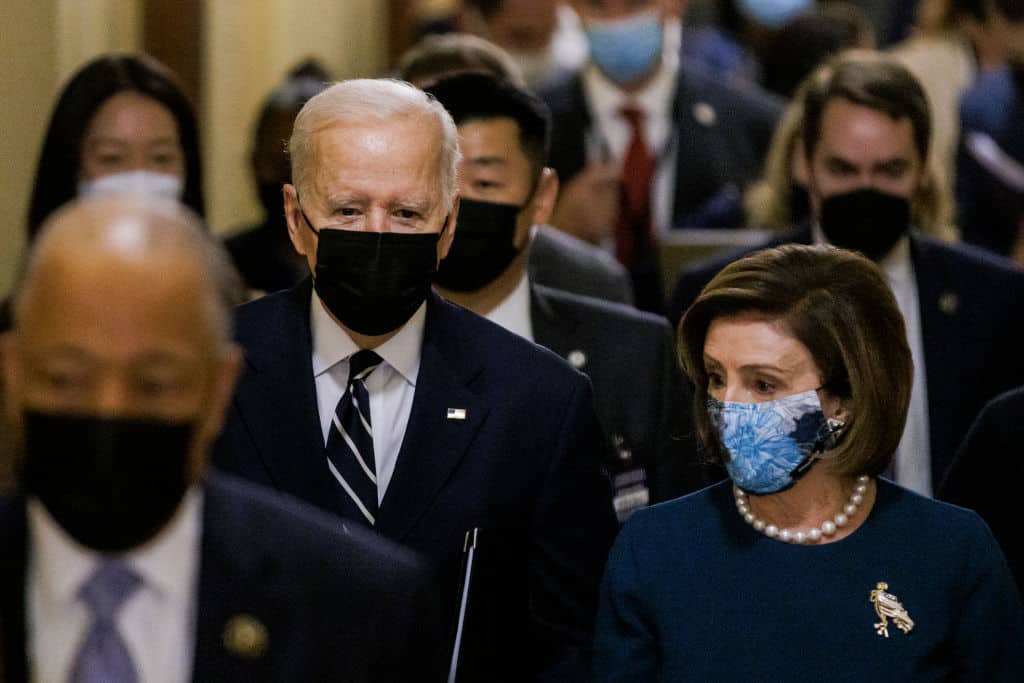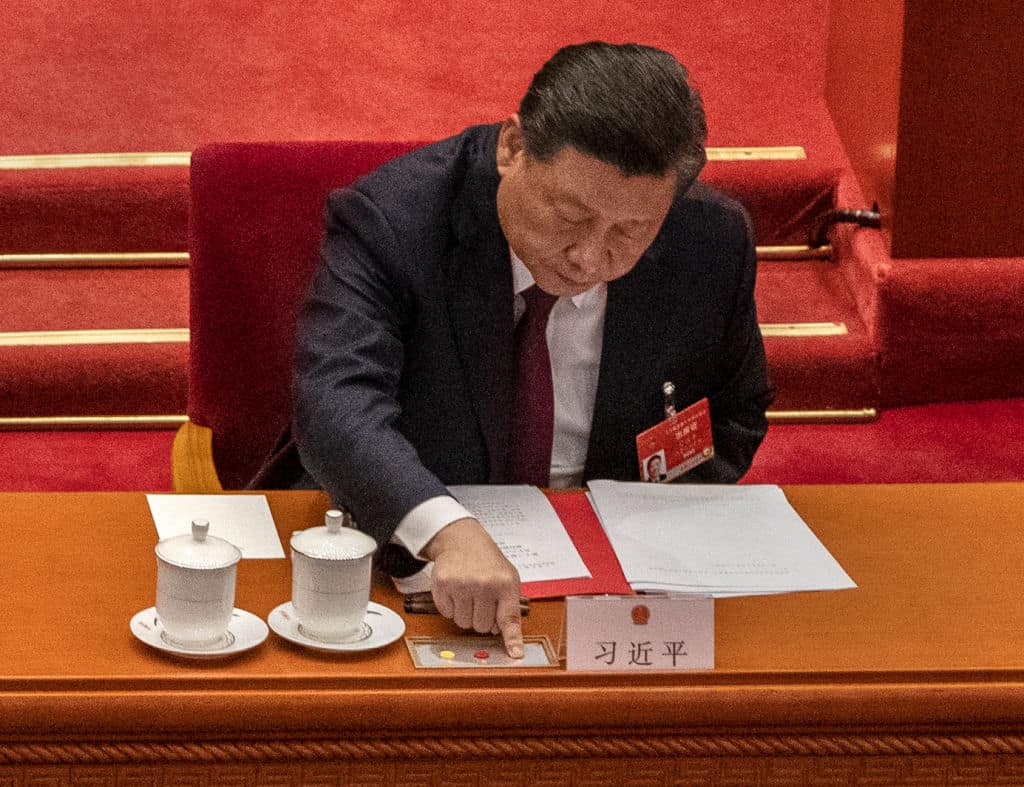In this issue
- Stablecoins: Race to regulate
- Squid Game tokens: Sinking feeling
- Metaverses in China: National insecurity
From the Editor’s Desk
Dear Reader,
“If you want something done, do it yourself” appears to be the thinking among U.S. regulators when it comes to stablecoins.
This week, two federal finance sector watchdogs joined a presidential working group in throwing down the gauntlet to Congress to legislate for the fast-growing sector, with a clear message that unless lawmakers sprung into action, rules would be imposed by the executive branch.
Given that gridlock is more the exception than the rule in both legislative houses these days, the odds appear strong that regulators will find their hand forced — or have a free hand, depending upon one’s point of view — to draft new rules for stablecoins.
The fact that those rules appear likely to come from regulators rather than congressional representatives may appear to some to be government by decree, but perhaps that’s a positive, given that lawmakers are unable to agree on even basic, arguably much higher-priority legislation, such as the Biden administration’s infrastructure plan. If the nuance of matters such as these eludes the U.S.’s elected representatives, how could they be expected to fare when confronted with concepts like stablecoins and decentralized finance?
Forkast.News readers are, naturally, further along the learning curve than most senators and congressional representatives, but we’re always pleased to offer people the opportunity to extend their knowledge of the crypto space.
That’s why we’re welcoming everyone to join our Bitcoin & Beyond Virtual Summit, to be held with AAX, on Nov. 10. We’ve gathered some of the world’s top blockchain voices, and they’ll be on our virtual stage talking about some of the most important issues in the industry. It’s what we promised from day one at Forkast.News: empowerment through knowledge. Thousands have already signed up, and we hope more will join us for close to a full day of incredible conversations.
Register here and see you there.
Until the next time,
Angie Lau,
Founder and Editor-in-Chief
Forkast.News
PS: Sharing a good primer for the crypto state of play in China — I sat down recently with Economist Senior Editor and host Jason Wincuinas on his Economist Impact podcast, “Banning Bitcoin.” Have a listen!
1. Stablecoins face regulatory reckoning

Image: Getty Images
By the numbers: Joe Biden — over 5,000% increase in Google search volume.
The administration of U.S. President Joe Biden is urging Congress to pass legislation on stablecoins, according to a much-anticipated report released this week. The report marks a bold first step toward regulating the sector following suggestions by the Securities and Exchange Commission and the Department of the Treasury in recent months.
- The report, issued by the President’s Working Group on Financial Markets, the Federal Deposit Insurance Corporation and the Office of the Comptroller of the Currency, suggests that stablecoin issuers be placed under a regulatory framework similar to the one that governs the banking industry. It also recommends that custodial wallet providers that offer custody services for stablecoins should operate under federal supervision. The report hinted in a footnote that the SEC, the Commodity Futures Trading Commission and other agencies should play a role in overseeing crypto trading, lending and borrowing activities.
- The drumbeat of calls for regulation has gone on for months. In July, SEC Chairman Gary Gensler suggested that stablecoins could be regulated as securities, and Treasury Secretary Janet Yellen expressed concerns about stablecoins, urging authorities to “act quickly” to put a framework of rules in place to govern the sector.
- In September, Gensler told the Senate Banking Committee that many cryptocurrencies, including stablecoins, were indeed securities. And only last week, Gensler made a point of reiterating that it was the SEC’s prerogative to regulate crypto. Gensler has been the behind-the-scenes force for SEC primacy in the matter, according to a Bloomberg report.
- In addition, three global bodies including the Bank for International Settlements, proposed regulatory standards and greater oversight of stablecoins in a consultation paper last month.
- The fast-growing stablecoin sector has attracted much attention, due in part to the controversy surrounding Tether, the world’s largest stablecoin issuer. Tether, which operates the USDT token and whose market capitalization stands at more than US$70 billion, was fined US$41 million last month for claiming that its coin was fully backed by U.S. dollars. The Commodity Futures Trading Commission said that from September 2017 to June this year, Tether had never had more than US$61.5 million in reserves to support the coin, of which some 442 million are in circulation. Nevertheless, stablecoins remain popular. According to Monday’s report, the collective market cap of stablecoins including Tether, USD Coin and Binance USD soared almost 500% over the 12 months to October, reaching a total of US$127 billion.
Forkast.Insights | What does it mean?
Regulation in crypto is long overdue. The first time Washington realized that blockchain was more than a flash in the pan, it wielded its regulatory might against projects using the initial coin offering model to raise funds. That led to a prolonged “crypto winter,” which saw funding and projects wither for nearly two years. This time around, the authorities need to tread more carefully.
As more institutional funding has been drawn into projects working in decentralized finance and other digital-native industries, the fortunes of those projects have become more intertwined with those of the broader economy. An imprecise regulatory offensive against that pillar of finance could destabilize others.
The SEC needs to strike a balance between protecting consumers and throttling an industry that’s now bigger than the U.S.’s logistics and transportation sector. It also needs to value each stablecoin on its merit.
The house of cards that Tether and other stablecoins represent needs to be reined in quickly and decisively in order to prevent a potential market collapse.
2. Game over

By the numbers: Squid Game crypto — over 5,000% increase in Google search volume.
The Squid Game token, an unofficial spin-off from the globally popular Netflix TV show of the same name, slumped to almost zero in a matter of minutes on Monday, costing those who had invested it around US$12 million in losses as its issuer reaped the gains of their credulity.
- Amid the enormous popularity of the TV show, and in anticipation of a play-to-earn game, SQUID, as the token is known, skyrocketed to a high of $2,861.80 from just US$0.12 before plunging to near-zero within five minutes on Monday.
- All of the tokens in the project’s Pancake-based staking pool were transferred to the address “SQUID Token Rug 2” through Tornado Cash, a protocol that stops transaction tracing. The token’s website is no longer accessible, and its Twitter account is under restrictions due to “unusual activity.”
- Complaints had been appearing since Oct. 30 about the inability to sell SQUID, with CoinMarketCap warning that it had received multiple reports of users being unable to sell the token on Pancakeswap and reminding traders to exercise caution.
- The South Korean TV series from which the idea for the coin originated follows a man who enters a mysterious tournament in which players are forced to play variations on Korean children’s games that involve life or death situations, enticed by the prospect of winning a prize of 46.5 billion won (around US$39 million). The show broke records as the most-watched series on Netflix, garnering viewership in more than 142 million households during the first four weeks following its release.
Forkast.Insights | What does it mean?
Squid Game did what many tokens in the crypto world have been doing for years: convince unsuspecting investors to put money into projects that have no real value.
The Squid Game rug pull is just another in a long line of scams with which crypto veterans have become all too familiar. The creators of the project identified Netflix’s series as a perfect vehicle to lure new crypto users into the space.
As discussed in a previous edition of The Current Forkast, participants in the crypto space have become increasingly adept at harnessing popular cultural movements to create and generate spectacular value.
Another project is already using the smash-hit series to sell non-fungible tokens. As the technology becomes easier to use and deploy, increasing numbers of people are creating cryptocurrencies. Although most such projects will never see more than a few users engage with them, others cross the threshold into the global spotlight.
As we discussed in the previous section of this newsletter, regulation has been needed for quite some time. But those wheels turn incredibly slowly, meaning that new crypto users need to rely on their detective skills to separate the wheat from the scammy chaff. As the crypto adage goes, DYOR — do your own research.
3. Do metaverses threaten China’s national security?

As technology giants such as Facebook embrace metaverses, a Chinese government-affiliated think tank is warning that the virtual digital worlds of the future may pose a threat to national security.
- The Institute of Modern International Relations, which operates under the supervision of the Ministry of National Security, said in a report that metaverses could raise concerns related to technological dominance and security and affect other developments in society.
- The report said countries that came late to metaverse development would find themselves at a disadvantage in terms of technological dominance, potentially facing discriminatory barriers when seeking access to metaverses developed in other countries. Differences in regulation between countries could also lead to their metaverses being unconnected. The report said metaverses may face network attacks, technical vulnerabilities, information leaks and infrastructure failures. In addition, it said metaverses could lead to major changes in political, economic, cultural and social structures, causing national security concerns.
- Authorities in some countries had begun to look at the strategic impact of metaverses, according to the report. South Korea’s Ministry of Science, ICT and Future Planning established a “Metaverse Alliance” in May, which more than 200 companies, including giants such as Samsung, had joined. Japanese authorities have also issued a report on metaverses, saying that the government should solve legal problems in the virtual world, and develop and export metaverse-related technical standards.
- Chinese tech companies are getting involved in metaverses, with heavyweights Tencent and Alibaba having registered metaverse-related trademarks. ByteDance acquired a leading virtual reality equipment manufacturer for around US$1.39 billion on Aug. 29. Tencent in fact got an early start, becoming the China distributor of metaverse sandbox game Roblox in 2019.
- In September, brokerage giant CITIC Securities said in a research report that metaverses would enter an exploration stage in the next three to five years, and that they could become a way of life in 20 years.
Forkast.Insights | What does it mean?
The metaverse is being measured with the same yardstick as that applied to the internet. In its early years, the web was little more than an academic tool to share research papers among a select group of American universities. We all know what happened after that.
The metaverse was until recently a patchy, disparate collection of virtual worlds with poor functionality and few users. That’s changing fast.
China was slow to the web, meaning that other nations built up robust tech industries that have subsequently challenged Beijing’s ability to monitor and control its own citizens. China’s current rulers are looking not to make the same mistake twice.
Although the web took decades to become the strategic asset that it is today, the metaverse is likely to develop more quickly. It relies on existing infrastructure — the internet — and the limitations of what it can and can’t do are mostly attributable to code.
China has long identified emerging industries with strategic importance — machine learning, artificial intelligence, renewable energy and the like — and has worked consistently to lodge itself into the associated supply chains. The metaverse is clearly another one of these key pieces of technology.
China’s main rival, the U.S., has been sluggish to respond to decentralized technology, although homegrown tech giants such as Facebook and Microsoft are pivoting into the space quickly. The metaverse is a land grab, and China is in it to win it.




